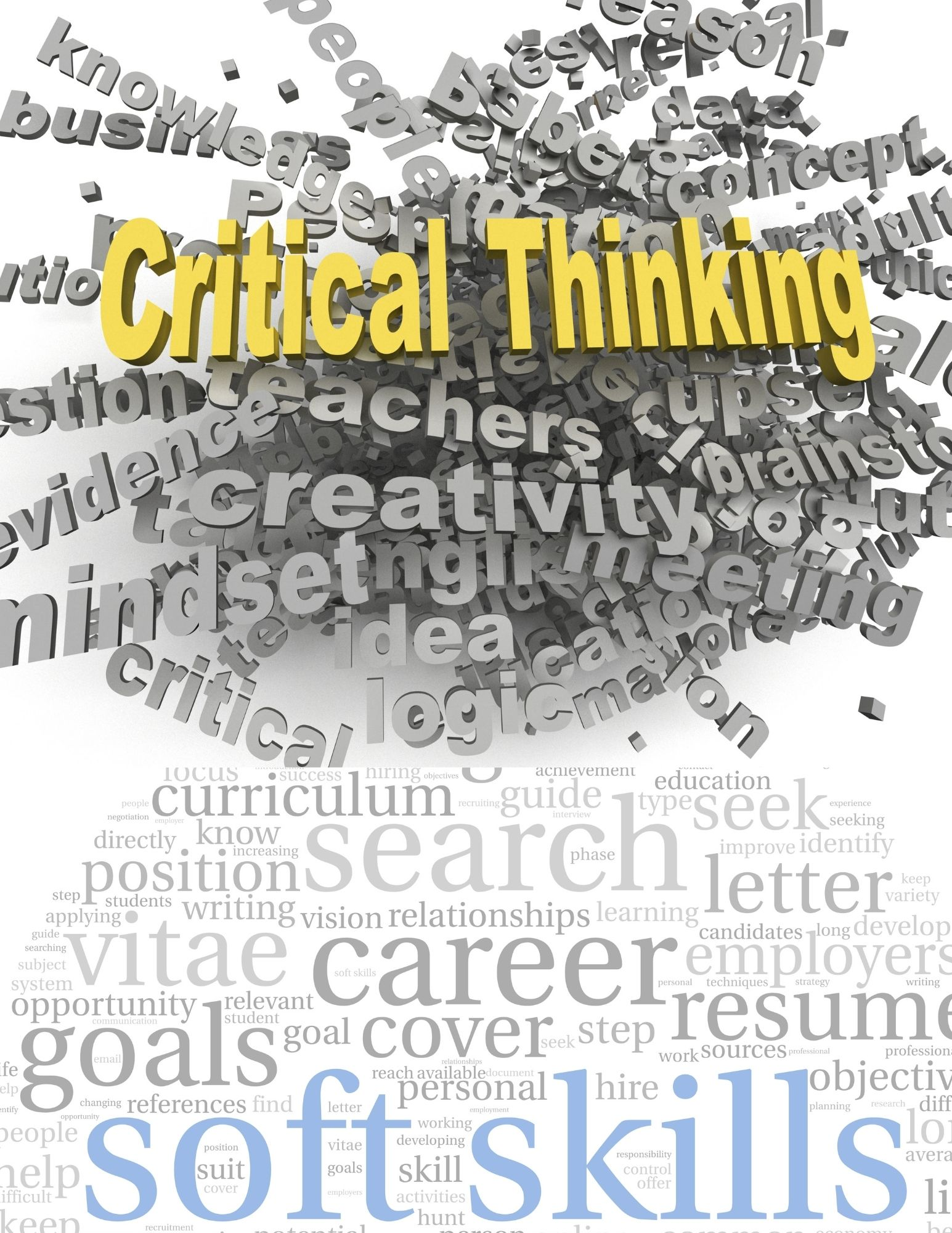
Many people think of writing and thinking as two completely different things, but there's a lot of overlap between the two! David McCullough, a well-known historian and writer, once stated, “Writing is thinking. To write well is to think clearly. That's why it's so hard." The ability to write well can help you think more clearly, organize your thoughts better, and even solve problems more easily.
Is writing the same as thinking?
“Writing is analyzed as thinking that uses paper or other media to externalize and manipulate symbolic expressions” (Oatley & Djikic, 2008).
Almost all humans write every day in one way or another, whether it's in a journal, a blog, an academic essay, an email, or even a to-do list. So many of us use writing in our lives and assume that it's simply a part of the way we all process our thoughts.
Writing is not just a form of communicating. It’s an instrument that, if used correctly, enables individuals to think deeply about the topic at hand. The goal of writing should be to describe your ideas and feelings and also to give your own perspective on it.
Though it might seem self-explanatory, writing is not simply conjoining two thoughts together, but rather explaining how they are different in some ways, they are also similar –revealing your viewpoint and stance.
Thinking comes first before writing

Thinking while writing can take a toll on you. Although it's important to think while you're writing, it’s crucial that you do not get caught up in the process. Instead, just write! It’s important to gather your ideas first before fully immersing yourself in the writing process. It's better to just jot down the first words that come to mind. Those words will lead you to other words and eventually your first draft.
The more you think, the more you can write

Walk
Take some time off your desk. Walking helps us think more clearly. If you are not into walking, find an activity you enjoy that allows you to think. You could experience a pivotal revelation while cleaning or washing dishes. Some people concoct their best ideas or solutions while showering (or, in ancient times, while bathing)! What you do is not as important as taking time away from your desk. The objective is to dedicate time to incubate your ideas.
Bring paper and pen or something to jot down ideas.
Bring a pen and notebook when going outside for a walk. If you’re showering, try a waterproof notepad. Inspirations and ideas may come and go, so it’s essential you write these down while the ideas are crisp and clear in your mind before you forget them. Alternatively, you can save a note in your cellphone, and if you’re old-school, you can use a voice recording app or a digital voice recorder
One step at a time
Multitasking is arguably inefficient because brainpower and attention are being wasted on other tasks. For example, a study published in the Journal of Research in Reading found, “Multitasking during reading is detrimental to reading comprehension when time is limited.” Therefore, first, research; second, think about (reflect on) it; and third, write it. It’s important to take things one step at a time. Focus on one task in order to proceed to the next one.
Writing can improve your critical thinking skills

When you're writing an essay, for instance, you're breaking the topic down into smaller topics, which helps you to critically think about the content and organization. When you're brainstorming ideas and casting them onto the page, you're continually challenging yourself to rethink your own logic and organization.
This exercise can improve your critical thinking skills and help you organize your thoughts in a way that is easier to understand. Additionally, reading and writing in combination also have the effect of prompting critical thinking.
Vice versa, critical thinking can improve your writing
First of all, the most important reason why critical thinking can improve your writing is because it will allow you to develop a better writing style for your essays, articles and stories. Critical thinking is about questioning beliefs and assumptions, not just accepting them. It is a skill that can be applied to your writing as well.
This doesn't mean that you have to be negative or cynical to get your point across. It means that you can develop your own writing style that is consistent and reliable.
Can people think and write at the same time?
Let's say you were to just sit down, turn on your computer, and start writing. What would happen? The truth is that you wouldn't be able to write anything worthwhile.
It would just be a discombobulated mess of thoughts and words. However, you may be able to think about something, or as I like to say, "take in a little bit of information," while writing, but you won't be able to take in a lot.
The best time to write content is when you have time to think about it beforehand. Whether that means thinking about it for years or just a few minutes, it's crucial to understand the content before you start writing.
Benefits of writing
Writing is a great way to improve your critical thinking skills. If you have a difficult time thinking of ideas, writing down your thoughts can help. You can practice coming up with new ideas, writing them down, and building on them.
Writing is a lot of fun and it'll help you think differently, which allows you to come up with more creative solutions to problems. If you write consistently, you can train yourself to come up with new ideas and ways to approach problems.
Writing develops strong thought processes and improves our condition on a physical and emotionally intellectual level. By taking the time to write, we develop better concentration and focus, especially when dealing with complex issues. Writing also broadens one’s knowledge as well as their vocabulary base.
If you can write a sentence, it's easy to write a paragraph, and if you can write a paragraph, you can write an essay. Writing doesn't have to be hard, it's a skill like any other, and there's no limit to how well you can do it if you put your mind to it.
Benefits of thinking
Thinking is a vital skill for every human being that requires development just like any other skills. There are a lot of benefits to thinking that people don't realize, but this can be very useful in improving their quality of life.
For starters, it encourages curiosity which is a skill for life, and is very important in learning. It also fosters independence and favors the development of imagination and critical skills which are vital in problem-solving.
A study suggests that the way a student learns can be linked to how they think. Some students may have different preferences in the way they process information that could make some methods of learning more effective than others.
For example, if a student prefers to read their notes over listening to them on a recording, this would constitute their learning style. As it relates to critical thinking, it shows that certain individuals can dramatically improve the strength of their capacity for critical thinking with some effort - and practicing the methods of your preferred learning style will help to do just that!
FAQs
How does writing help with everyday life?
Writing is a great way to improve your critical thinking skills. If you have a difficult time thinking of ideas, writing down your thoughts can help. You can practice coming up with new ideas, writing them down, and building on them. Writing is also a lot of fun and it'll help you think differently, which allows you to come up with more creative solutions to problems.
How does writing help with communication?
Writing is a great way to improve communication skills. When you write, you have to think about what you want to say and how you want to say it. This helps you to organize your thoughts and communicate more effectively. Communication is a two-way process, so writing can also help you to better understand what others are trying to say. Moreover, communication is an important life skill that can help you in both your personal and professional life.
What are some implications to writing?
Writing can have implications on both an individual and societal level. On an individual level, writing can help to improve critical thinking skills, communication skills, and problem-solving skills. On a societal level, writing can help to promote understanding and peace. For example, if people from different cultures take the time to write to each other, they can learn about each other's cultures and promote understanding and peace.
What makes someone a critical thinker?
There is no single answer to this question as critical thinking involves a complex set of skills. However, some of the skills that are involved in critical thinking include the ability to reason, analyze, and make decisions. Critical thinkers are also able to take different perspectives into account and see the big picture. Lastly, critical thinkers are lifelong learners who are constantly seeking to improve their skills.
What are essential critical thinking abilities?
As mentioned above, critical thinking involves a complex set of skills. However, some of the essential skills that are involved in critical thinking include the ability to reason, analyze, and make decisions. Critical thinkers are also able to take different perspectives into account and see the big picture. Lastly, critical thinkers are lifelong learners who are constantly seeking to improve their skills.
What are intellectual virtues?
The intellectual virtues are habits of mind that helps to improve critical thinking skills. Some of the intellectual virtues include curiosity, open-mindedness, and criticality. These virtues help individuals to think more deeply and critically about the world around them. Additionally, it can help solve complex problems by taking different perspectives into account.
How does society engage in the written communication principles?
Society engages in the written communication principles when it uses writing to communicate. For example, when people write to each other, they are engaging in the written communication principle of exchange. This helps to promote understanding and meaning. Additionally, when people write down their thoughts, they are engaging in the principle of self-reflection. This helps individuals to think more deeply about their own thoughts and ideas.
How do symbols relate to written communication?
Symbols are an important part of written communication. They help to represent thoughts and ideas in a more concrete way. Additionally, symbols can help to communicate complex ideas more effectively. For example, mathematical symbols can help to represent complicated equations more clearly. Moreover, symbols can help with communications as they represent language and can be considered visible signs.
Are there other forms of writing systems?
Yes, there are other forms of writing systems. For example, pictographic writing systems use pictures to represent words. Additionally, logographic writing systems use symbols to represent words. These other forms of writing can be helpful in communicating more effectively as they can provide a different perspective on the world. Moreover, other forms of writing can help with logical inquiry. For instance, if a person communications with another person who speaks a different language, the person can use symbols to represent photos of what they are trying to say.